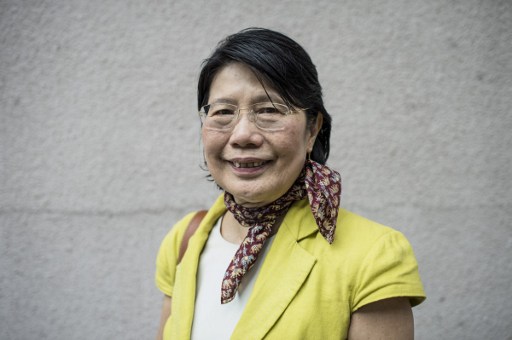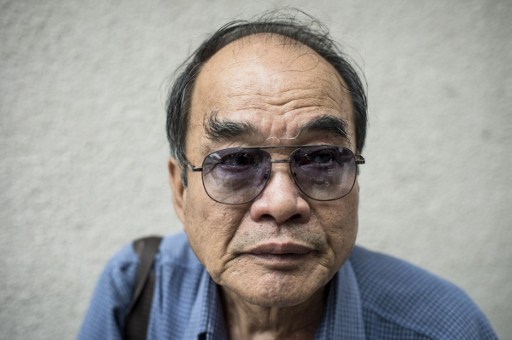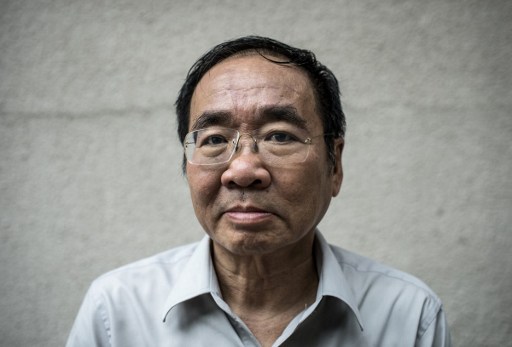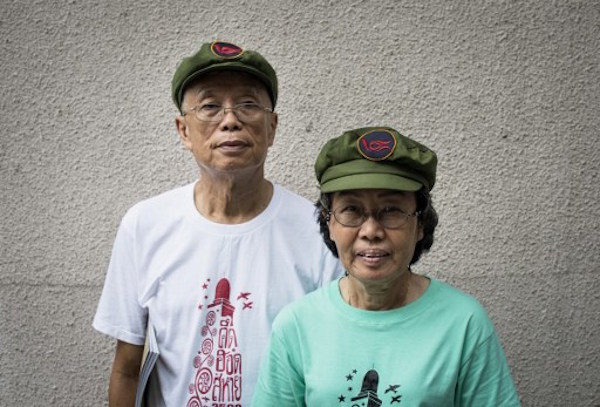Buddhist monks opened an emotionally charged commemoration Thursday on the 40th anniversary of a massacre of student protesters in Bangkok, as survivors reflected on a battle for democracy that appears lost in junta-run Thailand.
The killings of October 6, 1976 marked a nadir in the kingdom’s blood-splattered recent history.
At least 46 student protesters were shot, beaten to death or hung from trees as they massed at Thammasat University against the return from forced exile of hated military dictator Thanom Kittikachorn.
Survivors say the true toll was at least twice as high, with thousands more arrested or forced into hiding.
Fearing a leftist rebellion in a region where many countries had turned communist, security forces – flanked by pro-establishment armed militias – ruthlessly cracked down on the students.
No state apology has ever been issued and no officials have been held to account for the deaths – a reflection, critics say, of a culture of impunity for the military that endures to this day.
At dawn on Thursday survivors gathered under heavy drizzle around a permanent memorial at the university’s entrance where the assault began.
Some held candles, others wore T-shirts with the slogan “I think therefore I am dead” featuring a hanged man — a reference to the lynching of students who were strung from trees near the campus.
“There were many killed and injured on that day,” Sinsawat Yodbangtoey, 63, who was an art student at a nearby college when he joined the Thammasat protests.
“Even though I wasn’t injured… my heart is wounded.”
The October 6 crackdown ended a brief three-year flirtation with democracy and ushered in another 16 years of military-led rule.

Netnapa Khumtong, 60, was a medical student at Mahidol University at the time. “They forced us onto the football field and made us take all our clothes off. We were so humiliated and afraid. We can never forget – 40 years on, and still no one has been found responsible. They were violent, and unbelieavably cruel.”
Forgetting history
Thailand is once again under military rule, with the kingdom’s democracy movement hemmed in by repressive laws.
The last coup in 2014 – the army’s twelfth successful power grab since 1932 – came four years after soldiers once more opened fire on pro-democracy protesters on Bangkok’s streets.
Many newspapers nonetheless used the rare space provided by Thursday’s anniversary to recall dark chapters from the military’s past, while graphic photos of student hangings were widely shared on Thai social media.

Narin Sirithong, 75, was a student at the time. “I still think of the cruelty that happened on that day. I still feel injustice is being repeated. I am sad about today’s political situation – bad people have no right to be in politics. I come here today to commemorate the past and demand justice.”
Sirawith Seritiwat, a 24-year-old Thammasat student and one of a handful of activists protesting against the current junta, said remembering the past is vital in a country with a proclivity for collective amnesia over difficult events.
“There was an effort by many people, (Thai) governments and leaders, to forget history,” he told AFP.
“They want reality to be hidden.”
Four decades on, survivors are determined to remember their fallen friends.
Prommin Lertsuridej, 62, who fled to the jungle for four years to avoid arrest after the protest, said October 6 was a “hugely important” moment in modern Thai history.
“We gather every year to show we were not people who destroyed the country — but we are the ones who want to create fair society,” he added.

Krisadang Nutcharat, 59, was a student leader at Thammasat at the time, and now acts as a lawyer for a new generation of students facing prosecution for their anti-junta protests. “They are fighting for their ideals of freedom and democracy for Thailand. It is the same fight as those university students 40 years ago during my time.”
Story: AFP
Photos: AFP / Lillian Suwanrumpha




